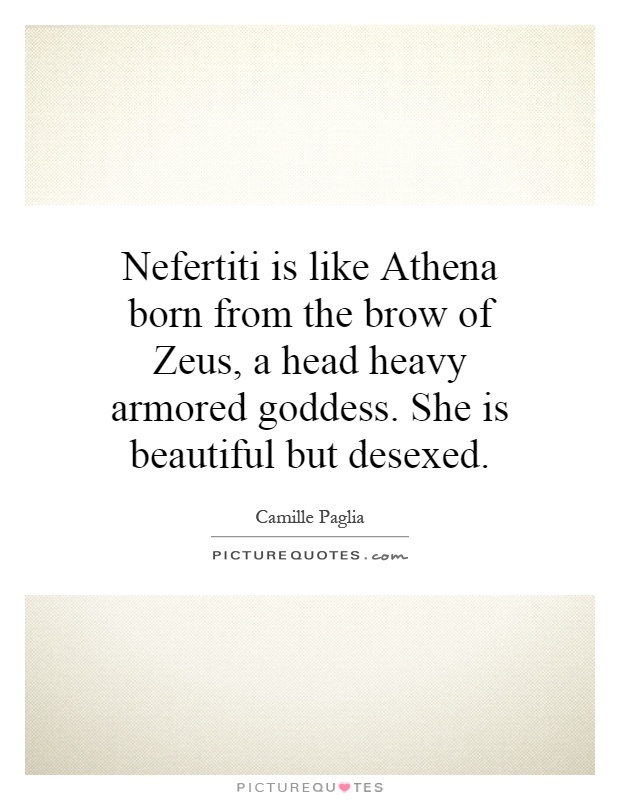Nefertiti is like Athena born from the brow of Zeus, a head heavy armored goddess. She is beautiful but desexed

Nefertiti is like Athena born from the brow of Zeus, a head heavy armored goddess. She is beautiful but desexed
In the context of Camille Paglia's work, the comparison of Nefertiti to Athena as a "head heavy armored goddess" is a fascinating one. Paglia, a renowned feminist scholar and cultural critic, often explores themes of gender, power, and sexuality in her work. In her analysis of ancient mythology and art, she frequently delves into the ways in which women are portrayed and perceived in society.The comparison of Nefertiti to Athena, the Greek goddess of wisdom and warfare, is particularly intriguing. Both figures are depicted as powerful and regal, with a sense of authority and strength. Nefertiti, the queen of Egypt during the 14th century BC, is often portrayed in art and sculpture with a distinctive headdress and a stoic expression. She exudes a sense of power and control, much like Athena.
However, the statement that Nefertiti is "beautiful but desexed" adds a layer of complexity to this comparison. In many depictions of Nefertiti, she is indeed portrayed as beautiful and elegant, with a sense of grace and poise. However, there is also a sense of detachment and distance in her portrayal, as if she is removed from the realm of sexuality and desire.
This idea of desexing Nefertiti can be seen as a reflection of the ways in which powerful women are often stripped of their sexuality in order to be taken seriously in a patriarchal society. Paglia has often critiqued the ways in which women are either hypersexualized or desexualized in art and culture, arguing that these narrow portrayals limit women's agency and autonomy.












 Friendship Quotes
Friendship Quotes Love Quotes
Love Quotes Life Quotes
Life Quotes Funny Quotes
Funny Quotes Motivational Quotes
Motivational Quotes Inspirational Quotes
Inspirational Quotes